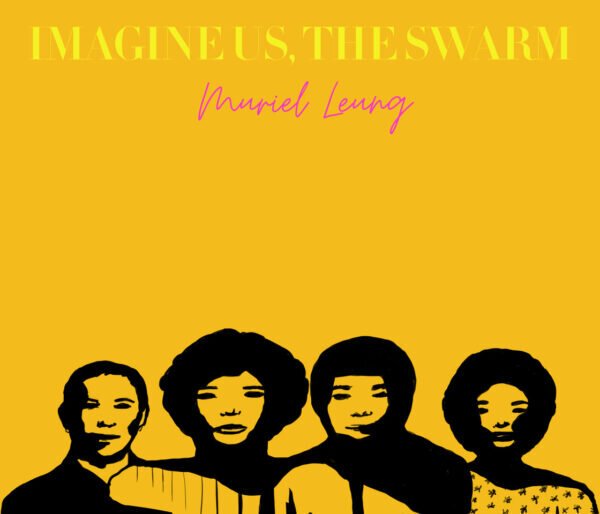Imagine Us, the Swarm
Muriel Leung
Reviewed by CD Eskilson
“How do you write a history that is both [yours] and [not yours] but an extension of an improbable future?” asks Muriel Leung in Imagine Us, the Swarm, winner of the Nightboat Books Poetry Prize. Her work probes collective ownership of the past to confront the histories behind intergenerational violence. Composed of essays-in-verse, Leung’s second collection reckons with memories of grief and loneliness occurring at the confluences of family trauma, xenophobia, and illness. In doing so, Leung daringly examines how reconsidering the past helps one move towards healing.
Leung navigates these conversations through highly inventive forms that showcase vast possibilities for working with the page. Here, space and punctuation work towards recovering lost family experiences and processing grief. For instance, a continuous ellipsis runs throughout “This Is to Live Several Lives,” reminiscent of bees buzzing. The droning underscores loss resulting from Leung’s father’s death while also amplifying the background noise of broader family legacies. Here, space is never empty, but inhabited by stories from previous generations.
Additionally, Leung’s use of form creates sites of resistance to racialized and gendered violence. In “The Plural Circuits of Tell,” sparse lines of verse are accompanied by dense footnotes meditating on cancer cell biology, memories of growing up with immigrant parents, and the racializing of diseases like SARS and COVID-19. The form explicitly links experiences of disease with experiences of xenophobia to expose the physical violence underpinning white supremacy. Through a striking pairing of form and content, Leung contends with the bodily harm done by racist structures.
The pieces in Imagine Us, the Swarm render intimate moments of pain and loss, but also embolden readers to plot out alternatives. “Suppose there is an end to our suffering,” Leung asks as she considers what can come from rewriting legacies of trauma. Through reckoning with history, the bold possibilities of what may follow soon emerge.

